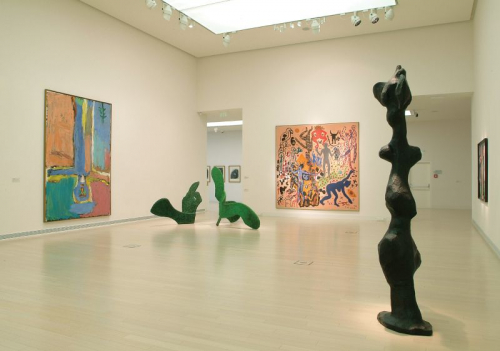As one of the most active underground artists of the eighties, Leiderman was a regular participant in illegal apartment exhibitions in his birth town, Odessa as well as Moscow. Although he came from the tradition of Moscow Conceptualism, hallmarked by Ilia Kabakov, he was influenced most by the performances of the Collective Actions Group (Kollektivnye Deistvia, K/D). Most events followed the same scheme: the participants would contact each other via telephone, take a train and meet at a specified location in a suburb of Moscow. After having executed an often visually uninteresting action, they would return to the city and analyse it. In collaboration with Sergei Anufriev (b. 1964) and Pavel Pepperstein (b. 1966), he founded the group Inspection Medical Hermeneutics at a Moscow squat in 1987. Their collective installations and performances were the result of experimentation with language and meaning. Their main sources of inspiration were different conceptual texts and experimental poetry. They worked on developing the method of conceptual analysis and an entirely new canon. On account of differences within the group, Leiderman left it in 1990, and has been working on developing his own voice. His painting entitled Born, Happy, Dead was made before he left the group. The key to interpreting it lies in the underlying meaning encoded in Russian and German as well as the visual appearance of the piece. Leiderman is a successful prose writer and poet. In 1993 he was featured at the Venice Biennale, and in 1996 at the Manifesta in Rotterdam. In 1998, Ludwig Museum Budapest organised a joint exhibition for him and János Sugár. He lives and works in Moscow and Berlin.


